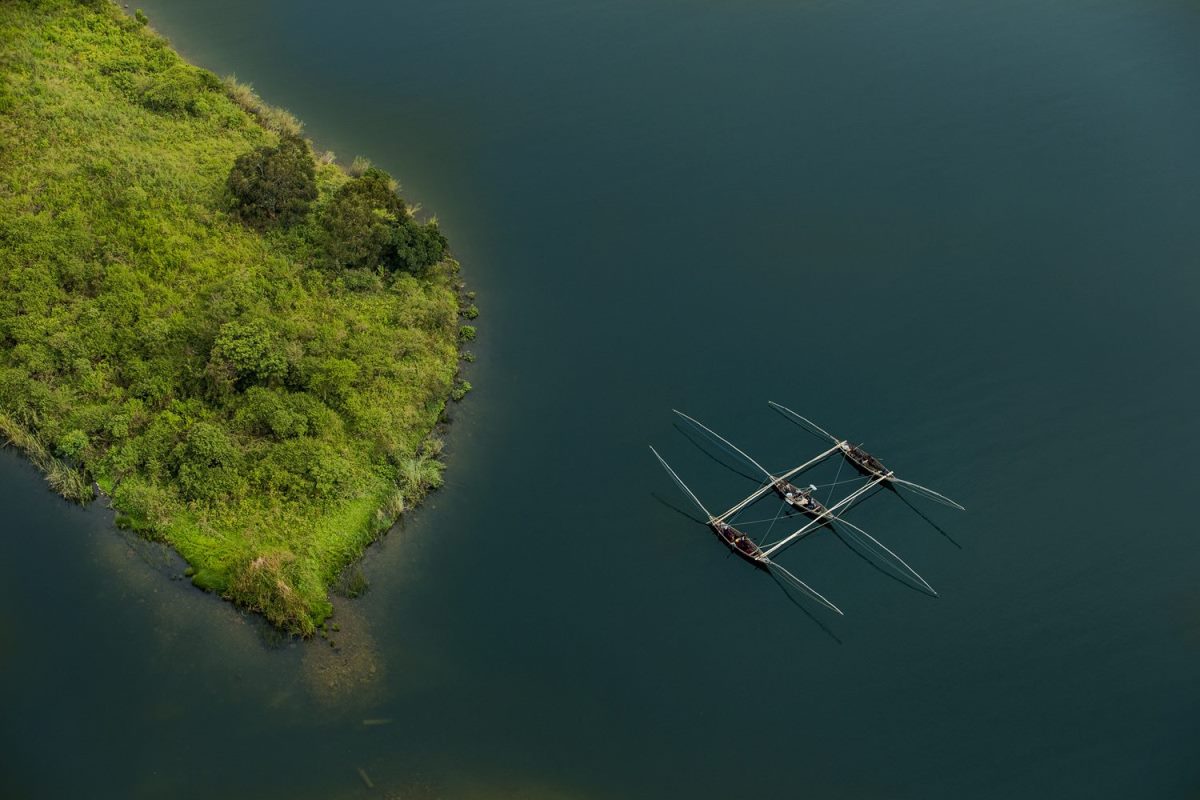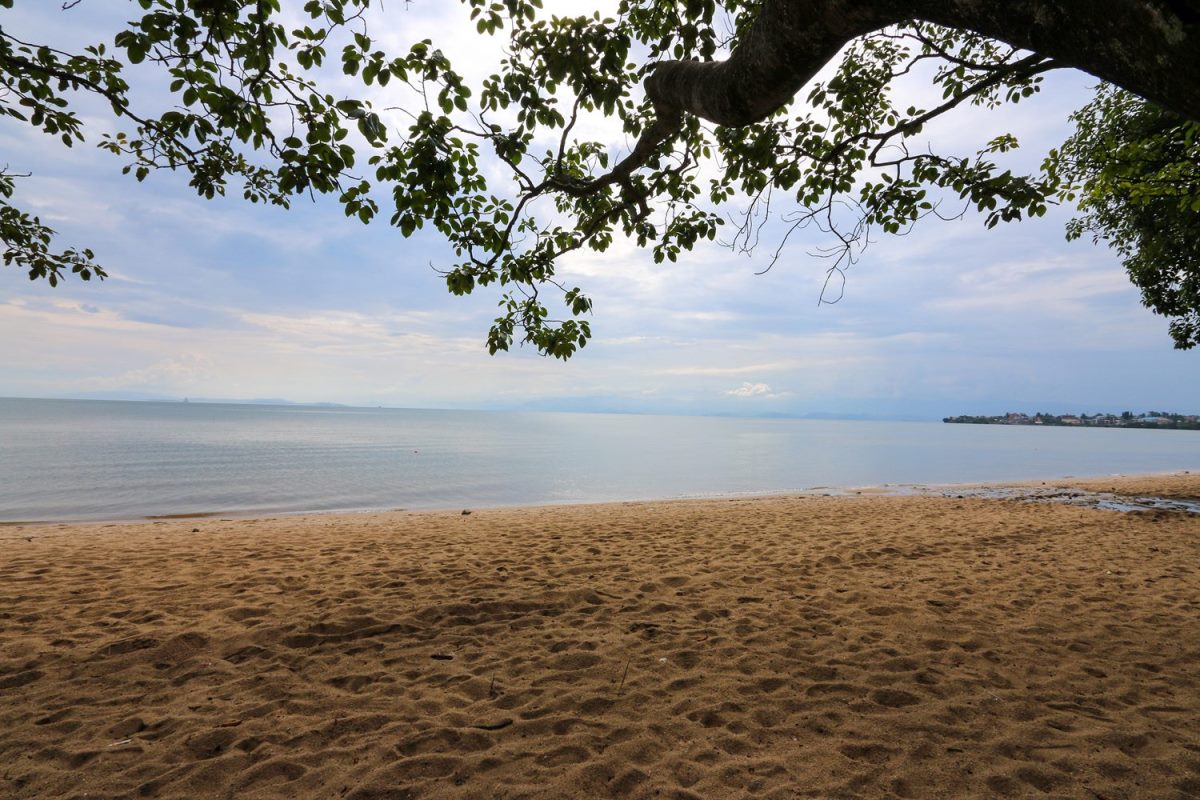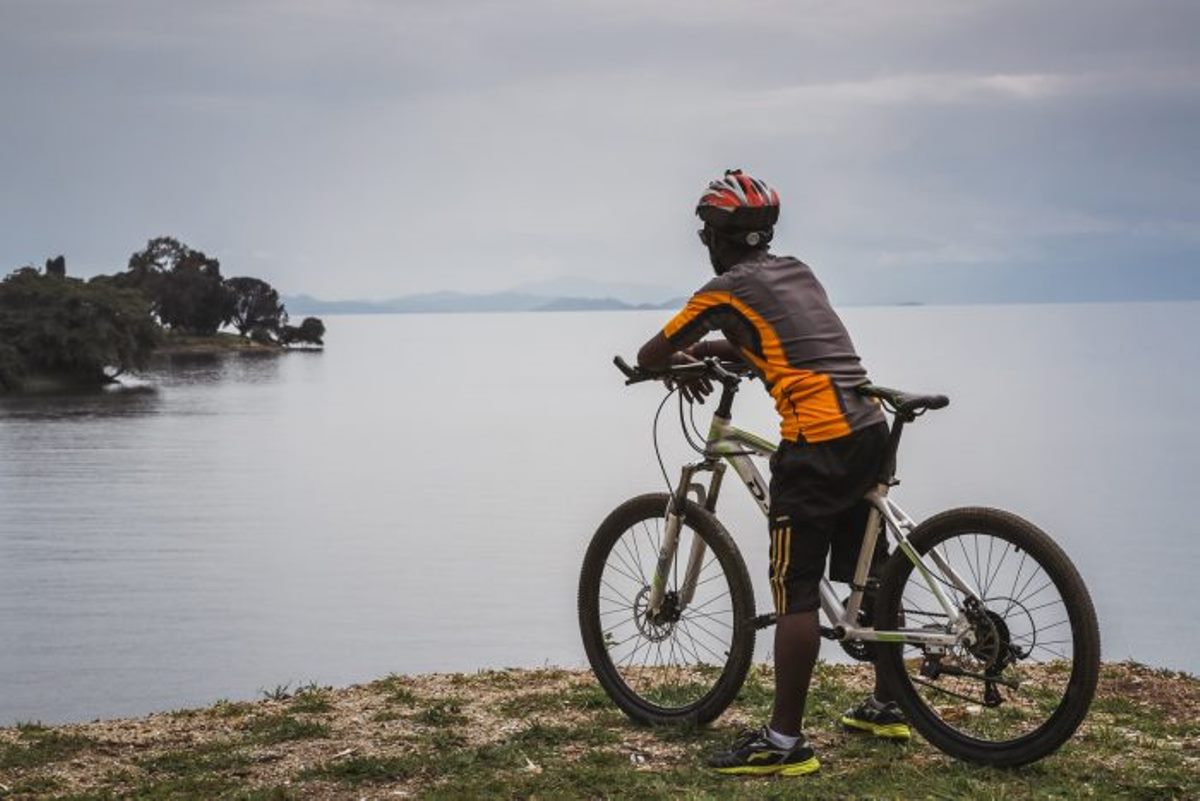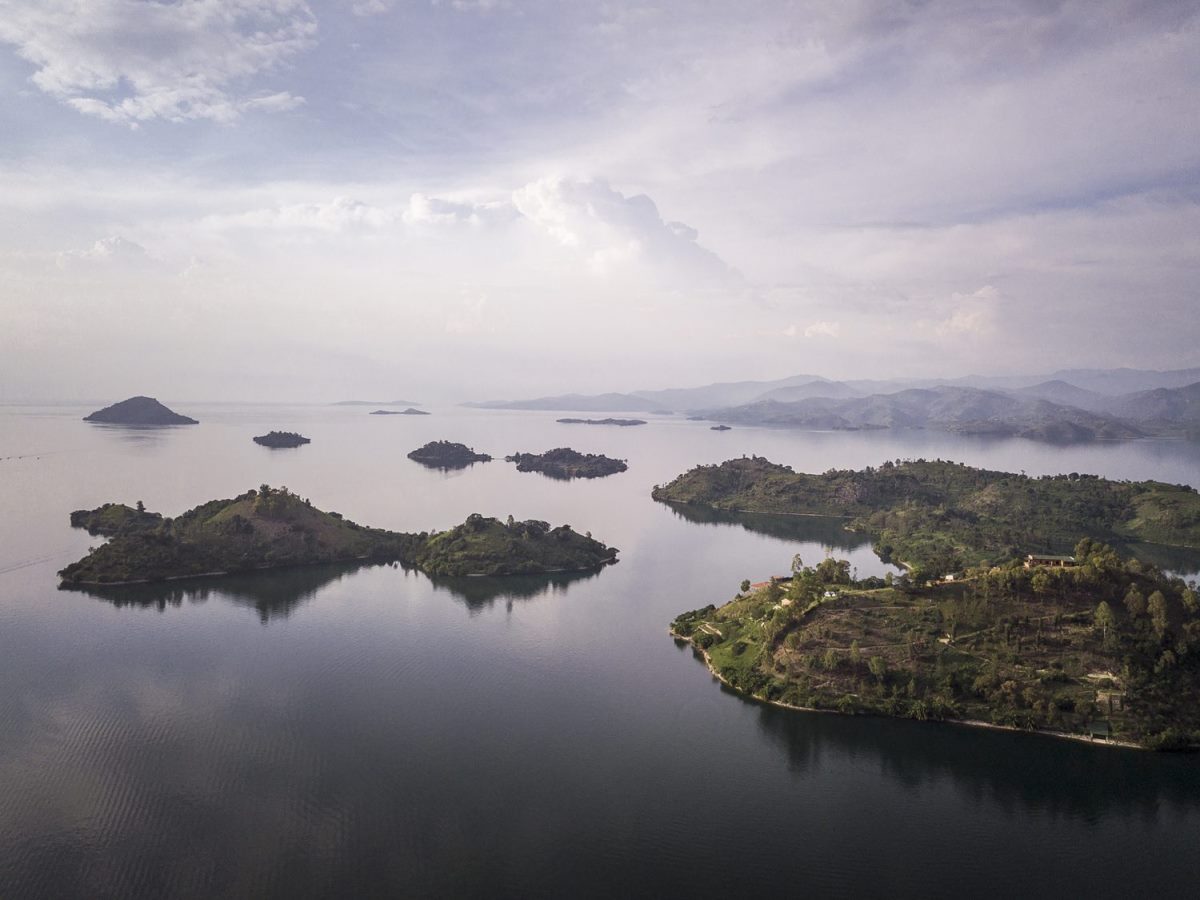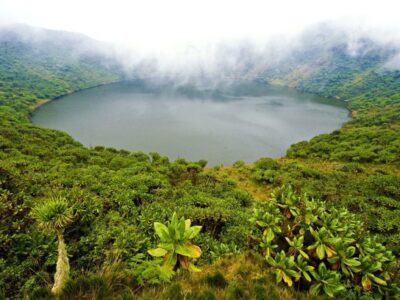Lake Kivu | Lakes in Rwanda
LAKE KIVU TRAVEL GUIDE, RWANDA
Part of Africa's Great Rift Valley, Lake Kivu in the West of Rwanda is surrounded by magnificent mountains and has deep emerald green waters. It is Rwanda's largest lake and the sixth largest in Africa, providing a calm place to unwind.
Location of Lake Kivu, Rwanda
Lake Kivu is one of the African Great Lakes, located on the border between Rwanda and the Democratic Republic of the Congo. It is situated in the Albertine Rift, the western branch of the East African Rift, which is known for its geological activity and stunning landscapes.
Geographical Position of Lake Kivu, Rwanda
Western Rwanda: Lake Kivu lies in the western part of Rwanda, forming a natural border with the Democratic Republic of the Congo. The lake is nestled between the Rwandan provinces of Western and Southern.
Proximity of Lake Kivu to Major Cities in Rwanda
The lake is bordered by several important towns and cities, including:
Gisenyi: Located on the northern shore of Lake Kivu, Gisenyi is a popular resort town known for its beautiful beaches and vibrant nightlife.
Kibuye: Situated on the eastern shore, Kibuye is known for its scenic views and historical sites.
Cyangugu (Rusizi): Located on the southern shore, Cyangugu is a gateway to the Nyungwe National Park and offers stunning views of the lake.
Major Features of Lake Kivu, Rwanda
Size and Depth: Lake Kivu covers an area of approximately 2,700 square kilometers (1,040 square miles) and has a maximum depth of about 485 meters (1,591 feet). It is one of the deepest lakes in Africa.
Islands: The lake is dotted with numerous islands, the largest of which is Idjwi Island, located in the Democratic Republic of the Congo. Other notable islands include Napoleon Island and Amahoro Island, which are popular tourist destinations.
Volcanic Activity: The lake is situated in a region with significant volcanic activity. The nearby Virunga Mountains, including active volcanoes such as Mount Nyiragongo and Mount Nyamuragira, contribute to the lake's unique geological features.
Lake Kivu Accessibility, Rwanda
Road Access: Lake Kivu is accessible by road from Kigali, the capital city of Rwanda. The drive to the lake takes approximately 3-4 hours, depending on the destination along the lake's shore.
Boat Transport: The lake is navigable, and boat transport is available between the various towns and islands. This provides a scenic and convenient way to explore the lake and its surroundings.
Lake Kivu's strategic location in the Albertine Rift, its stunning landscapes, and its proximity to major towns and cities make it a unique and valuable destination for tourists and researchers alike. The lake offers a range of activities, from relaxing on its beaches to exploring its islands and enjoying water sports.
History of Lake Kivu, Rwanda
Lake Kivu, one of Africa's Great Lakes, has a rich and complex history shaped by geological, ecological, and human factors. Here’s a detailed summary of its history:
Geological History of Lake Kivu, Rwanda
Formation: Lake Kivu is situated in the Albertine Rift, the western branch of the East African Rift. This rift is a tectonic plate boundary that has been slowly pulling apart, leading to volcanic activity and the formation of the lake. The lake's basin was formed by volcanic activity, and it is surrounded by mountains, including the Virunga range.
Volcanic Activity: About 13,000 to 9,000 years ago, volcanic activity blocked Lake Kivu's outlet to the watershed of the Nile, causing the lake to drain southwards into Lake Tanganyika via the Ruzizi River. This volcanic activity also contributed to the formation of the Virunga Mountains, which rise between Lake Kivu and Lake Edward to the north.
Ecological History of Lake Kivu, Rwanda
Limnic Eruptions: Lake Kivu is one of only three lakes in the world known to undergo limnic eruptions, where deep water layers overturn and release dissolved gases like carbon dioxide and methane. These eruptions can be dangerous, but they are rare. The lake's bottom contains significant amounts of methane, which poses both a risk and an opportunity for energy extraction.
Human History of Lake Kivu, Rwanda
Early Inhabitants: The region around Lake Kivu has been inhabited for thousands of years. Early human communities relied on the lake for fishing and agriculture.
European Exploration: In 1894, German officer and colonial ruler Gustav Adolf von Götzen was the first European to discover Lake Kivu. His exploration marked the beginning of European interest in the region.
Colonial Era: During the colonial period, the lake and its surroundings were influenced by both German and Belgian colonial administrations. The lake served as a natural boundary and a resource for the colonial economy.
Post-Colonial Period: After Rwanda gained independence in 1962, Lake Kivu continued to play a vital role in the country's economy and ecology. The lake's resources, including its fish and potential for methane extraction, have been important for local communities and national development.
Recent Developments at Lake Kivu, Rwanda
Methane Extraction: In recent years, efforts have been made to extract methane from the lake's depths for energy production. This process aims to reduce the risk of limnic eruptions while providing a sustainable energy source for the region.
Tourism: Lake Kivu has become a popular tourist destination, known for its stunning scenery, water sports, and vibrant towns like Gisenyi, Kibuye, and Cyangugu. The lake's islands, hot springs, and beaches attract visitors from around the world.
Lake Kivu's history is a testament to the interplay between geological forces and human activity. From its formation through volcanic activity to its role in the lives of local communities and its potential for sustainable energy, Lake Kivu remains a vital and dynamic part of Rwanda's natural and cultural heritage.
Iconic Resort Towns near Lake Kivu, Rwanda
Rusizi is the closest town to Nyungwe National Park, which is about an hour's drive away
Karongi - half way along the lake, is a popular beach resort with hillsides covered in pines and eucalyptus serving as a backdrop to the sparkling lake. At dawn and dusk the sound of local fisherman singing carries across the water as they paddle in unison.
Rubavu - is a large town on the northern edge of Lake Kivu, located an hour's drive from Volcanoes National Park. Rubavu's waterfront is lined with hotels and trendy bars on the lakeshore, ideal for sundowner cocktails

